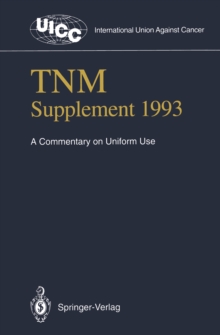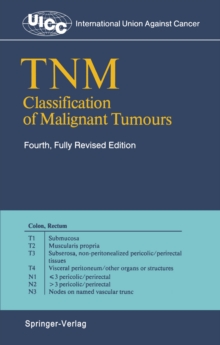
Prognostic Factors in Cancer PDF
Edited by Paul Hermanek, Mary K. Gospodarowicz, Donald E. Henson, Robert V.P. Hutter, Leslie H. Sobin
Part of the UICC International Union Against Cancer series
Description
M. K. Gospodarowicz, P. Hermanek, and D. E. Henson Attention to innovations in cancer treatment has tended to eclipse the importance of prognostic assessment.
However, the recognition that prognostic factors often have a greater impact on outcome than available therapies and the proliferation of biochemical, molecular, and genetic markers have resulted in renewed interest in this field.
The outcome in patients with cancer is determined by a combination of numerous factors.
Presently, the most widely recognized are the extent of disease, histologic type of tumor, and treatment.
It has been known for some time that additional factors also influence outcome.
These include histologic grade, lymphatic or vascular invasion, mitotic index, performance status, symptoms, and most recently genetic and biochemical markers.
It is the aim of this volume to compile those prognostic factors that have emerged as important determinants of outcome for tumors at various sites.
This compilation represents the first phase of a more extensive process to integrate all prognostic factors in cancer to further enhance the prediction of outcome following treatment.
Certain issues surround- ing the assessment and reporting of prognostic factors are also considered.
Importance of Prognostic Factors Prognostic factors in cancer often have an immense influence on outcome, while treatment often has a much weaker effect.
For example, the influence of the presence of lymph node involvement on survival of patients with metastatic breast cancer is much greater than the effect of adjuvant treatment with tamoxifen in the same group of patients [5].
Information
-
Download - Immediately Available
- Format:PDF
- Publisher:Springer Berlin Heidelberg
- Publication Date:06/12/2012
- Category:
- ISBN:9783642793950
Information
-
Download - Immediately Available
- Format:PDF
- Publisher:Springer Berlin Heidelberg
- Publication Date:06/12/2012
- Category:
- ISBN:9783642793950










